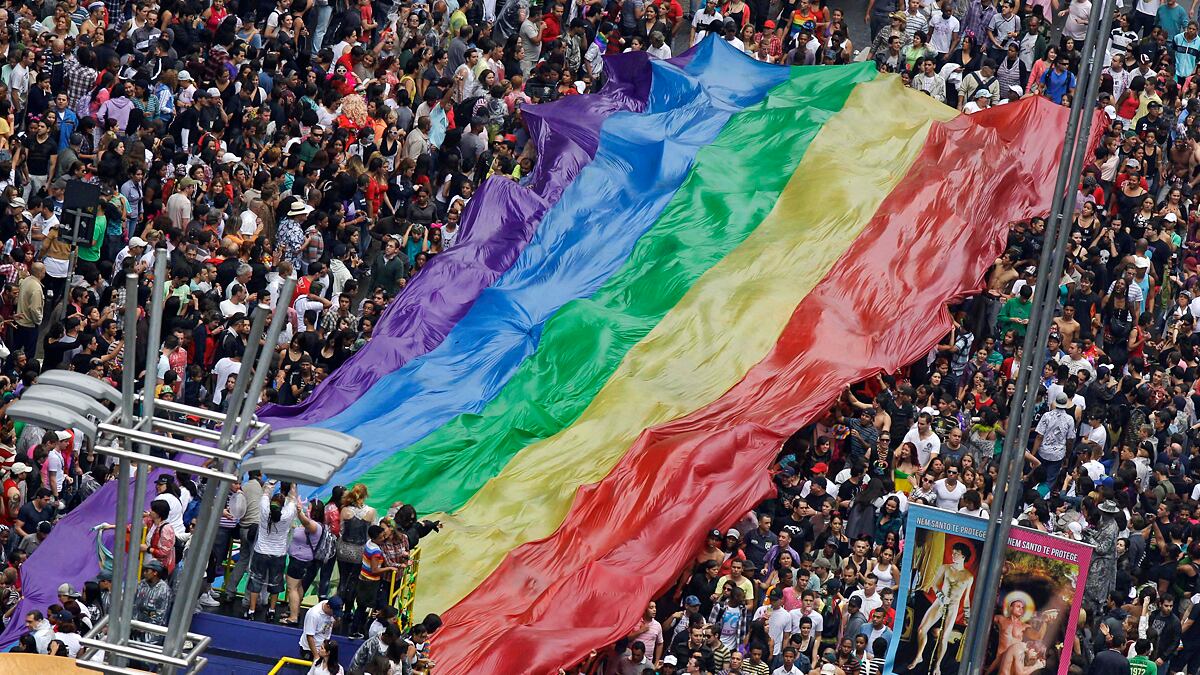In Brazil, where tolerance is a trademark, there’s a date set aside for just about every interest group. The Day of the Indian celebrates pre-colonial Brazilians. Professors, merchants, and journalists each have their special day, while Brazilians of color have two. The Supreme Court even recently greenlighted marching for the right to smoke marijuana. Now, if the São Paulo City Council has its way, heterosexuals will have a moment all their own.
Municipal legislators in Latin America’s biggest metropolis have just approved a measure to create Hetero Pride Day: a slot on the calendar just for people who are straight. Mayor Gilberto Kassab still has to sign the bill, and the smart money says he won’t, but the lawmakers’ initiative has already triggered a backlash from the streets to cyberspace.
Carlos Apolinário, the city councilman who sponsored the measure, denies the bill is antigay. Rather, he claims, it's just payback for the “special privileges” that homosexuals enjoy and that the rest of the planet does not. The fact that Hetero Pride Day was set for just before Christmas was not lost on Apolinário’s constituency, led by militant, right-wing evangelical Protestants, to whom the latest liberties sanctioned by the Brazilian courts—which recently sanctioned same-sex unions and named surviving spouses as lawful heirs when a partner dies—are an un-Christian assault on country, creed, and family.
After all, he says, homosexuals and sympathizers rally every year on Avenida Paulista, one of São Paulo’s prime patches of real estate, where more than a million gay, lesbian, and transgender Brazilians and their supporters paraded on June 26. What’s more, the Brazilian Supreme Court recently signed off on homosexual unions, a decision that was promptly celebrated in Rio by a mass marriage of 43 same-sex couples. “My impression,” Apolinário blogged recently, “is that the most important thing for the press, for the justice system and for Congress, is the question of gay rights.”
The response from the Brazilian street was massive and swift. Some 237 civic groups published an open letter to the mayor, urging him to kill the bill. And barely a day after the vote, hackers blacked out Apolinário’s official website, which is flush with posts like “Gay Dictatorship” and “I’m Not a Homophobe,” and replaced it with their own angry scrawl: “One homosexual is killed every 36 hours,” the hacktivists thundered. “Councilor Carlos Apolinário insists on proposing laws that encourage hate and discrimination.”

“The attack [on the website] was a demonstration of intolerance,” Apolinário blogged back. “It shows I am right in combating the excesses and privileges of the gay community.” Apolinário is especially worked up that City Hall allows the gay-pride parade through São Paulo’s financial district, and even distributed condoms and sex gel to the marchers. After all, he complained, city authorities denied permits for an evangelical Christian “March for Jesus” along the same thoroughfare. “They said no to Jesus on [Avenida] Paulista but allow homosexuals!” he recently groused.
True, many Brazilians—and not a few of his fellow city councilors—blanch at Apolinário's fevered views. His measure might not have passed at all without a procedural sleight of hand; it was part of a package deal allowing each lawmaker to pen a pet bill in exchange for a collective commitment to vote through legislation that had long been stalled in the council chambers. And yet his broadsides against gay rights strike a satisfying chord in a country where straitlaced Roman Catholics and aggressive Protestant evangelicals often see themselves as a put-upon majority. But in a country where murders of homosexuals have spiked 113 percent in the last five years, their case is getting harder to make.






